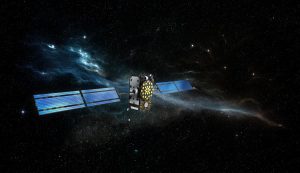
Britain has officially withdrawn from the European Union’s (EU) Galileo Global Navigation Satellite System (GNSS) because of fears that the UK will have no influence over the technological and policy direction of the satellite project after the country leaves the EU early in 2019.
The decision reflects one of the largest, and perhaps surprising, sticking points in the tense and at time dramatic negotiations between London and Brussels over the terms of Britain’s withdrawal from the EU following the referendum held in the UK in the summer of 2016 that voted to end Britain’s participation.
The announcement raises further questions about Britain’s commitment to building its own GNSS system that meets its security and critical infrastructure satellite-based positioning, navigation, and timing (PNT) needs. It also brings into question technological interoperability issues regarding European security after Brexit takes place.
“I have been clear from the outset that the UK will remain firmly committed to Europe’s collective security after Brexit,” said British Prime Minister Theresa May on the sidelines of the G-20 summit held in Buenos Aires, Argentina, late last week.
“But given the commission’s decision to bar the UK from being fully involved in developing all aspects of Galileo it is only right that we find alternatives. I cannot let our armed forces depend on a system we cannot be sure of. That would not be in our national interest,” she added.
It is estimated that the UK has invested as much as GBP1.4 billion into Galileo, and discussions regarding a refund and Britain’s continuing involvement in the EU’s Copernicus Earth observation programme are ongoing.
The announcement by Downing Street effectively ends any hope that UK space industry might continue to contribute to the Galileo programme, and comes as a hard blow.
Graham Peters, Chair of UKspace, the British space industry lobbying group, said, “This latest statement reinforces the need to ensure that the UK alternative to Galileo is fully committed, robust and sustainable…UKspace members are already engaged in the feasibility phase of the UK satellite navigation programme and we hope that early decisions are made about the full programme to allow industry to sustain the essential skills needed in the UK over the long term.”
Theresa May’s announcement spurred the resignation of the UK’s top minister responsible for space matters, Sam Gyimah, MP, who served as the Minister of State for Universities, Science, Research, and Innovation in the Department for Business, Energy, and Industrial Strategy (BEIS).
In a statement posted on his Facebook account, Mr. Gyimah said:
“Having surrendered our voice, our vote and our veto, we will have to rely on the ‘best endeavours’ of the EU to strike a final agreement that works in our national interest. As Minister with the responsibility for space technology I have seen first-hand the EU stack the deck against us time and time again, even while the ink was drying on the transition deal. Galileo is a clarion call that it will be ‘EU first’, and to think otherwise – whether you are a leaver or remainer – is at best incredibly naïve.”
A scoping and requirements study detailing what a British alternative to Galileo would cost and look like is still underway, and is the cause of political controversy. UK space industry spokespeople praise the idea as a balm for growing uncertainty about the continuing commercial and strategic viability of the British space sector, while many UK space experts decry it as a waste of scarce resources when the UK already enjoys unfettered and full access to the U.S. Global Positioning System (GPS).
It has been reported that the UK is in discussions with countries such as Australia, Japan, and New Zealand about their participation in the alternative GNSS programme, and in Buenos Aires, Downing Street officials intimated that British Overseas Territories and Crown Dependencies around the world are being eyed as possible sites for ground-based infrastructure for the system.





